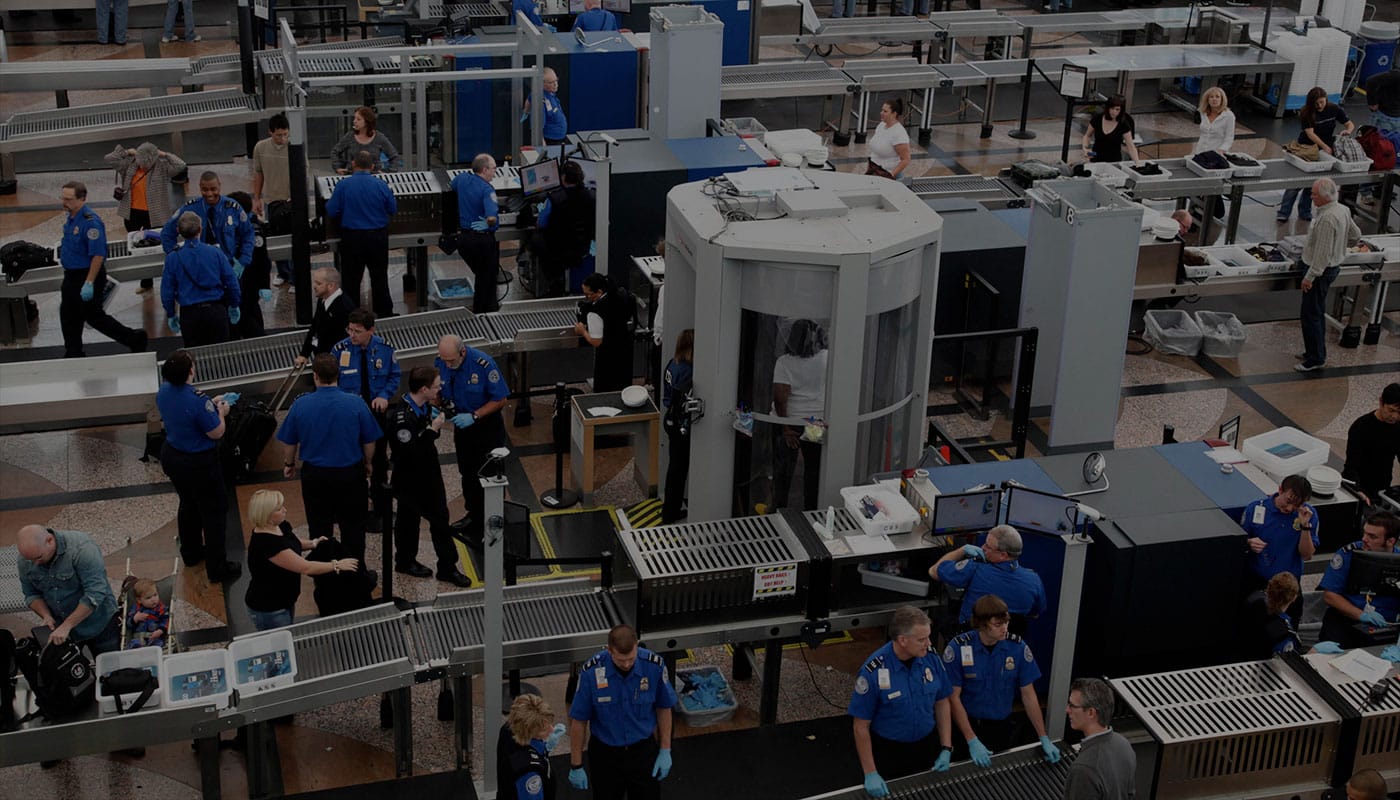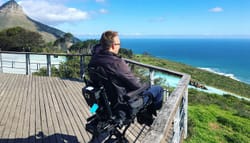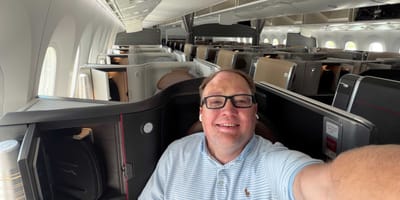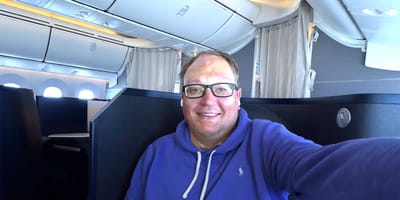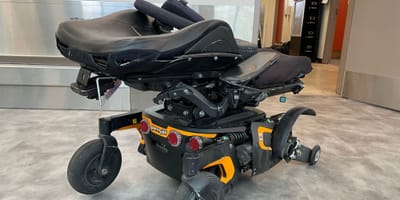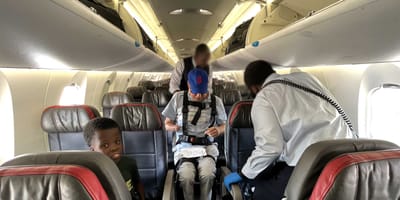As one of the world’s most frequent air travelers with a wheelchair and disability, I was invited to attend the 15th Annual TSA Disability and Multicultural Coalition Conference, held last week in Arlington, Virginia. The coalition, comprised of groups representing people of various disabilities, religions, races and sexual orientations, meets each year to discuss the changing landscape of airport security policies and procedures.

The day-long meeting was separated into two tracks—disability and multiculturalism. There representing WheelchairTravel.org and its readers, I took the disability track and was not a party to the discussions on race, religion, gender identity or sexual orientation. As the readership of this website is diverse, I will recommend that future coalition conferences be organized to allow representatives to gain insight from every session.
TSA is committed to protecting the dignity of all travelers
Acting TSA Administrator, Dr. Huban A. Gowadia, gave a keynote address to the entire coalition during the conference’s opening session on Tuesday, August 8, 2017. She praised the work of coalition members in advising the Transportation Security Administration and serving as advocates for the travelers we represent. She sincerely expressed the agency’s strong commitment to serving the public through safety and security, while protecting the civil rights and dignity of all air travelers.

Although her time as acting administrator was set to end later in the week, she assured us that the agency’s commitment would not waver under the new leadership. That new administrator, David Pekoske, was sworn in this past Thursday, August 10. Pekoske was formerly the Vice Commandant (second-in-command) of the U.S. Coast Guard and was confirmed by the U.S. Senate on August 3, following his nomination by President Trump.
“Consistency is key”
One concern that attendees (myself included) raised again and again was the lack of consistency in airport security screenings. For travelers with disabilities, it is important to know what to expect at the security checkpoint. But readers frequently tell me that security procedures differ between airports and depending on the transportation security officer (TSO) that they are assigned. A lack of consistency breeds confusion, and often unsettles people with disabilities who, statistically, are infrequent travelers.
Having just attended the Amputee Coalition’s National Conference a few days before, I was especially committed to raising the concerns of amputees and prosthesis users. Representatives of the TSA were consistent in their statements – travelers cannot be required to remove prosthetic devices from their bodies during screening. Whenever you run into a problem, ask your TSO to call a Passenger Support Specialist. A PSS is specially trained to respond to the needs of travelers with disabilities and medical conditions, and they will resolve any issues you have during the screening process.
Wait times must be reduced
You’ve just placed your bags on the conveyor belt, and begin to wait patiently for a “male assist” or “female assist.” Waiting a few minutes is no problem, but when you get into double digits – 10, 20, or 30 minutes, you’ll likely become agitated.
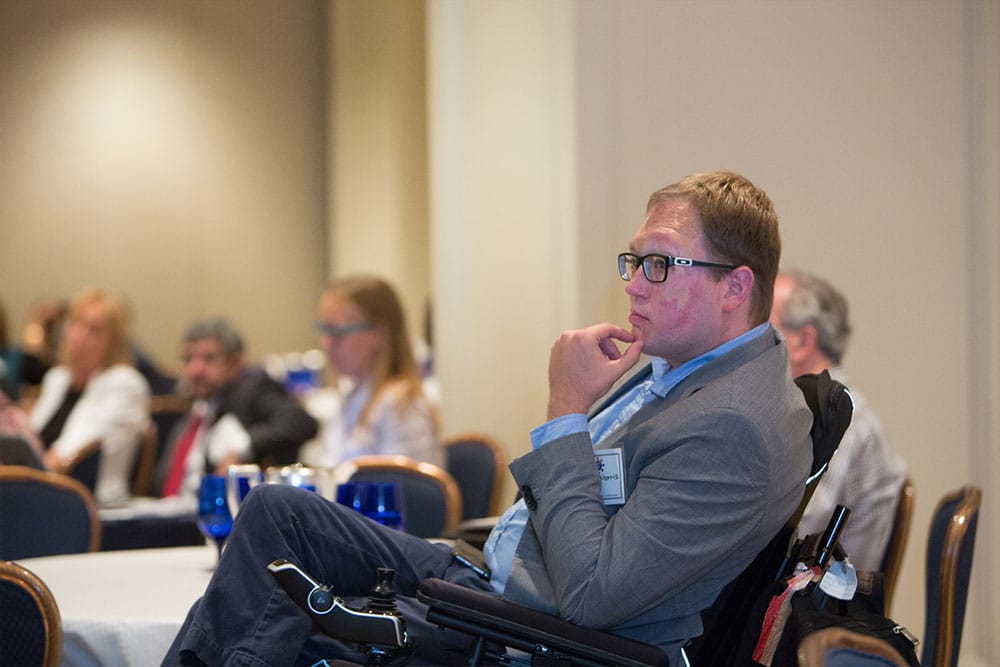
I raised this concern at the conference, suggesting that lengthy wait times for screening assistance are unfair to passengers with disabilities and discriminatory in nature. The problem, as commonsense would suggest, is staffing. The lengthiest waits occur due to the limited number of agents assigned to each checkpoint. Unfortunately, resolving these staffing struggles would require Congress to increase funding to the TSA.
I suggested an interim alternative – that passengers be allowed to keep their bags until a TSO is available to assist them, and to create dedicated lines to assist passengers with disabilities.
Take advantage of TSA Cares
Representatives of the TSA encouraged coalition members to share TSA Cares with their readers and members. TSA Cares is a toll-free helpline, staffed with agents who can answer questions about security screening for passengers with disabilities, medical conditions and medical/mobility equipment.
Travelers can also ask to be escorted through security by a PSS, and you can make such requests up to 72 hours before departure. TSA Cares can be reached at +1 (855) 787-2227, 8 a.m. to 11 p.m. ET on weekdays, and 9 a.m. to 8 p.m. on weekends and holidays.
Working together to improve the TSA
This being my first time attending the TSA Disability and Multicultural Coalition Conference, I wasn’t sure what to expect. After developing connections with representatives in the Office of Civil Rights and Liberties, Ombudsman, & Traveler Engagement section of the TSA, many of whom had disabilities of their own, I left with the feeling that a better future is in sight.
I have personally committed to drawing on my experience as a disabled air traveler in future conversations with the TSA. I am hopeful that, together, we will be able to create a more disability-friendly airport security experience. And, unlike other institutions in the travel industry, TSA leaders are open to feedback and advice.
What has your experience been with airport security?
What issues would you like me to address with the TSA?
How can your airport security screening be improved?
Let me know in the comments below!

